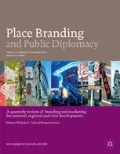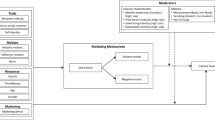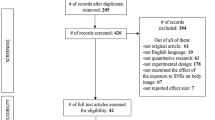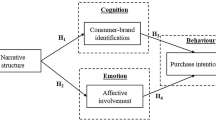Abstract
This study explores the association between nation brand personality and product evaluation. Conducting an online questionnaire survey in Japan that used the quota sampling method (N=880), the product evaluation of various products (leather shoes, smartphones, movies, automobiles, shirts, mineral water and tour preference) was measured for seven countries (China, Germany, India, Italy, the United States, South Korea and Vietnam). A factor analysis yielded three nation brand personality dimensions (sincerity, competence and warmth), two of which are predicted by the stereotype content model. China was evaluated the lowest on all three dimensions, and China’s brand personality was most negatively correlated with consumer ethnocentrism among seven countries. The contact hypothesis was only partially supported for nation brand personalities. Nation brand personalities were associated with product evaluations in different ways depending on product category. Competence was positively correlated with the evaluation of all the products, while the warmth was positively correlated with the evaluation of fashion-related products and movies. Sincerity was positively correlated with the evaluation of high-tech products and mineral water. Tour preference was most strongly correlated with nation liking. The article discusses implications for nation branding strategies on the basis of these findings.
Similar content being viewed by others
Notes
According to the results of a survey of a random sample of Japanese citizens (JGSS-2008 survey) (JGSS Research Center, 2013), 63.3 per cent of people held a job, as compared with 61.7 per cent of the respondents in this survey; 31 per cent of the sample had a college education or higher, as compared with 43 per cent of the respondents in this survey. These results indicate that this survey was biased toward highly educated people, to some extent.
The authors selected Germany and Italy because products imported from other large European countries such as France and Britain are not as favored as those made in Germany and Italy in Japan.
Therefore, products not produced in some countries (for example, airplanes and chopsticks) were avoided.
These five items were adapted and employed in Ishii (2012). The items include ‘I buy things made in Japan wherever possible’, ‘To reduce unemployment in Japan, I think we should avoid buying imported goods’, ‘As a Japanese person, I don’t think it’s good to buy many imported goods’, ‘I think we should buy imported goods only when similar products made in Japan are not available’ and ‘I buy things made in Japan rather than imported goods if the quality is the same.’ Cronbach’s alpha was 0.831.
Responses about Japan are excluded from the following analysis because Japan is not a foreign country for the respondents. The response data were pooled for seven countries (China, Germany, India, Italy, South Korea, the United States and Vietnam) in the following analysis and every respondent rated two countries. The total number of observations is 1540.
The correlations between these three scores are 0.626 (sincerity and competence), 0.689 (sincerity and warmth) and 0.610 (competence and warmth).
It may not be surprising because the warmth includes ‘familiar’ item. However, even after removing ‘familiar’ from the warmth, the standardized coefficient is statistically significant (β=0.076; t=2.64, P<0.01).
References
Aaker, J.L. (1997) Dimensions of brand personality. Journal of Marketing Research 34 (3): 347–356.
Aaker, J., Benet-Martinez, V. and Garolera, J. (2001) Consumption symbols as carriers of culture: A study of Japanese and Spanish brand personality constructs. Journal of Personality and Social Psychology 81 (3): 492–508.
Allport, G.W. (1954) The Nature of Prejudice. Reading, MA: Addison-Wesley.
d’Astous, A. and Boujbel, L. (2007) Positioning countries on personality dimensions: Scale development and implications for country marketing. Journal of Business Research 60 (3): 231–239.
Chattalas, M. and Takada, H. (2013) Warm versus competent countries: National stereotyping effects on expectation of hedonic versus utilitarian product properties. Place Branding and Cultural Diplomacy 9 (2): 88–97.
Clemenz, J., Brettel, M. and Moeller, T. (2012) How the personality of a brand impacts the perception of different dimensions of quality. Journal of Brand Management 20 (1): 52–64.
Cuddy, A.J.C., Fiske, S.T. and Glick, P. (2008) Warmth and competence as universal dimensions of social perception: The stereotype content model and the BIAS map. Advances in Experimental Social Psychology 40: 61–149.
Cuddy, A.J.C. et al. (2009) Stereotype content model across cultures: Towards universal similarities and some differences. British Journal of Social Psychology 48 (1): 1–33.
Fang, Y. (2006) Branding the nation: What is being branded? Journal of Vacation Marketing 12 (1): 5–14.
Fang, Y. (2008) Soft power: Power of attraction or confusion? Place Branding and Public Diplomacy 4 (2): 147–158.
Fiske, S.T., Cuddy, A.J.C. and Glick, P. (2006) Universal dimensions of social cognition: Warmth and competence. Trends in Cognitive Science 11 (2): 78–83.
Han, C.M. (1989) Country image: Halo or summary construct? Journal of Marketing Research 26 (2): 222–229.
Ishii, K. (2009) Nationalistic sentiments of Chinese consumers: The effects and determinants of animosity and consumer ethnocentrism. Journal of International Consumer Marketing 21 (4): 299–308.
Ishii, K. (2012) Nationalism, materialism, and preferences for the US and East Asian Countries in Japan. Electronic Journal of Contemporary Japanese Studies 12(1): http://www.japanesestudies.org.uk/ejcjs/vol12/iss1/ishii.html.
JGSS Research Center. (2013) Outline of surveys, http://jgss.daishodai.ac.jp/english/surveys/sur_top.html, accessed 30 March 2014.
Kim, Y.-K., Shim, S.-W. and Dinnie, K. (2013) The dimensions of nation brand personality: A study of nine countries. Corporate Reputation Review 16 (1): 34–47.
Kline, R.B. (2011) Principles and Practice of Structural Equation Modeling. 3rd edn. New York: The Guilford Press.
Kosakai, T. (1996) Ibunka jyuyō no paradokkusu. [Paradox of Acceptance of Foreign Cultures] Tokyo, Japan: Asahi Shimbun.
Lala, V., Allred, A.T. and Chakraborty, G. (2009) A multidimensional scale for measuring country image. Journal of International Consumer Marketing 21 (1): 51–66.
Lee, J.K. and Lee, W.-N. (2009) Country-of-origin effects on consumer product evaluation and purchase intention: The role of objective versus subjective knowledge. Journal of International Consumer Marketing 21 (2): 137–151.
Nagashima, A. (1970) Comparison of Japanese and US attitudes toward foreign products. Journal of Marketing 31 (1): 68–74.
Pereira, A., Hsu, C. and Kundu, S.K. (2005) Country-of-origin image: Measurement and cross-national testing. Journal of Business Research 58 (1): 103–106.
Rojas-Mendez, J.I., Papadopoulos, N. and Murphy, S.A. (2013) Measuring and positioning nation brands: A comparative brand personality approach. Corporate Reputation Review 16 (1): 48–65.
Rojas-Mendez, J.I., Murphy, S.A. and Papadopoulos, N. (2013) The U.S. brand personality: A Sino perspective. Journal of Business Research 66 (8): 1028–1034.
Romero, M.de la P. Technologico de Monterrey Guadalajara, C. (2012) Dimensions of brand personality in Mexico. Global Journal of Business Research 6 (5): 35–47.
Rosenbloom, A. and Haefner, J.E. (2009) Country-of-origin effects and global brand trust: A first look. Journal of Global Marketing 22 (4): 267–278.
Roth, K.P. and Diamantopoulos, A. (2009) Advancing the country image construct. Journal of Business Research 62 (7): 726–740.
Roth, M.S. and Romeo, J.B. (1992) Matching product category and country image perceptions: A framework for managing research. Journal of International Business Studies 23 (3): 477–497.
Shankarmahesh, M. (2006) Consumer ethnocentrism: An integrative review of its antecedents and consequences. International Marketing Review 23 (2): 146–172.
Shimp, T.A. and Sharma, S. (1987) Consumer ethnocentrism: Construction and validation of the CETSCALE. Journal of Marketing Research 24 (3): 280–289.
Skitka, L.J. (2005) Patriotism or nationalism? Understanding post-September 11, 2001, flag-display behavior. Journal of Applied Social Psychology 35 (10): 1995–2011.
Song, Y.-A. and Sung, Y. (2013) Antecedents of nation brand personality. Corporate Reputation Review 16 (1): 80–94.
The NHK Broadcasting Culture Research Institute. (2010) Gendai nihonjin no ishiki kozo. [The Structure of Modern Japanese People’s Attitudes] Tokyo, Japan: NHK Publishing.
Valette-Florence, P., Guizani, H. and Merunka, D. (2011) The impact of brand personality and sales promotions on brand equity. Journal of Business 64 (1): 24–28.
Verlegh, P.W.J., Steenkamp, J-B.E.M. and Meulenberg, M.T.G. (2005) Country-of-origin effects in consumer processing of advertising claims. International Journal of Research in Marketing 22 (2): 127–139.
Acknowledgements
This study was financially supported by Japan Society for the Promotion of Science (JSPS) KAKENHI Grant (No. 22330051). The authors would like to express their gratitude to Yoshito Maruoka (Director of iPublic Relations Division, Dentsu Inc.) for his insightful suggestions on this study.
Author information
Authors and Affiliations
Additional information
An early version of this article was presented at the annual conference of the Japanese Society of Social Psychology held in Tsukuba, Japan, in November 2012.
Rights and permissions
About this article
Cite this article
Ishii, K., Watanabe, S. Nation brand personality and product evaluation among Japanese people: Implications for nation branding. Place Brand Public Dipl 11, 51–64 (2015). https://doi.org/10.1057/pb.2014.25
Received:
Revised:
Published:
Issue Date:
DOI: https://doi.org/10.1057/pb.2014.25




